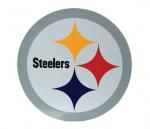7-Eleven, the world’s largest convenience store chain, shared new numbers from its drone delivery experiment today. Seventy-seven customers in Reno, Nev., have now received items ordered from 7-Eleven delivered to their doorsteps via drone.
All 77 flights were from one store to a dozen select customers who live within a mile of the shop. 7-Eleven has partnered with the drone maker Flirtey for its delivery pilot.
It marks the first regular commercial drone delivery service to operate in the United States, flying ahead of other, potentially bigger drone delivery projects that haven’t yet been able to take off in the U.S. — like Alphabet’s Project Wing and Amazon’s Prime Air, the latter of which only demonstrated its first delivery to a customer last week.
Amazon’s drone delivery was in the U.K. countryside. The 7-Eleven drone delivery service, on the other hand, is in Reno, a populated urban and suburban area, which poses a potentially more complex set of challenges.
This wasn’t Flirtey and 7-Eleven’s first drone delivery — the pair made history in July when one 7-Eleven customer’s order of a chicken sandwich, donuts, candy, Slurpees and hot coffee was completed via drone. The companies claim it was the first time a drone delivered a package to a U.S. resident who placed an order with a retailer.
For the November drone delivery service, customers ordered food and beverages, but mostly over-the-counter medicines. The drones used a GPS system to locate a customer’s house, where the drone wouldn’t land, but rather hover near the ground before lowering the package.
Deliveries were completed, on average, less than ten minutes after the order was placed, according to a statement from Flirtey.
All the deliveries happened within the line of sight of the drone pilot, but the drones flew autonomously. Right now, it’s not legal in the U.S. to fly a drone beyond the line of sight of the operator without special permission from the Federal Aviation Administration.
But in October, NASA and the FAA conducted tests in Reno to research a low-altitude air traffic control system that would track and record drone flights without the pilot watching the drone in the air the entire time. Air traffic control for drones will be essential to figure out before drone delivery can happen outside of the line of sight of the operator, and then delivery programs like those from 7-Eleven, Amazon’s Prime Air or Alphabet’s Project Wing can happen at a larger scale.
Project Wing completed its first U.S. customer delivery test in September, ferrying Chipotle burritos to students at Virginia Tech. But that was a one-off trial, not a run of 77 drone deliveries over a month, like the Flirtey and 7-Eleven collaboration.
Before working with 7-Eleven, Flirtey completed the first drone delivery in the U.S., carrying medical supplies to a clinic in rural Virginia last year. The Virginia flight landed Flirtey’s drone a spot in the Smithsonian’s National Air and Space Museum.
Watch 7-Eleven and Flirtey’s first drone delivery to a customer in Reno, Nev., in July:
Torrent Invites! Buy, Trade, Sell Or Find Free Invites, For EVERY Private Tracker! HDBits.org, BTN, PTP, MTV, Empornium, Orpheus, Bibliotik, RED, IPT, TL, PHD etc!
Results 1 to 1 of 1
-
12-21-2016 #1Donor





















- Reputation Points
- 37911
- Reputation Power
- 100
- Join Date
- Aug 2014
- Posts
- 2,655
- Time Online
- 39 d 23 h 33 m
- Avg. Time Online
- 16 m
- Mentioned
- 393 Post(s)
- Quoted
- 106 Post(s)
- Liked
- 1390 times
- Feedbacks
- 114 (100%)
7-Eleven beats Google and Amazon to the first regular commercial drone delivery servi


 1Likes
1Likes LinkBack URL
LinkBack URL About LinkBacks
About LinkBacks





 Reply With Quote
Reply With Quote





